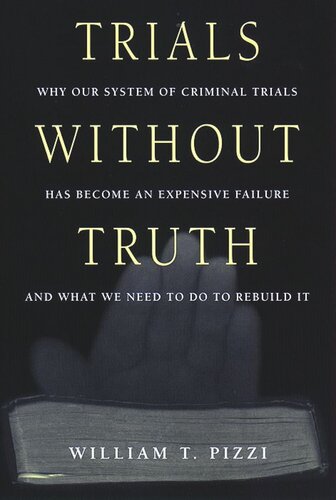

Most ebook files are in PDF format, so you can easily read them using various software such as Foxit Reader or directly on the Google Chrome browser.
Some ebook files are released by publishers in other formats such as .awz, .mobi, .epub, .fb2, etc. You may need to install specific software to read these formats on mobile/PC, such as Calibre.
Please read the tutorial at this link: https://ebookbell.com/faq
We offer FREE conversion to the popular formats you request; however, this may take some time. Therefore, right after payment, please email us, and we will try to provide the service as quickly as possible.
For some exceptional file formats or broken links (if any), please refrain from opening any disputes. Instead, email us first, and we will try to assist within a maximum of 6 hours.
EbookBell Team

5.0
60 reviewsReginald Denny. O. J. Simpson. Colin Ferguson. Louise Woodward: all names that have cast a spotlight on the deficiencies of the American system of criminal justice. Yet, in the wake of each trial that exposes shocking behavior by trial participants or results in counterintuitive rulings—often with perverse results—the American public is reassured by the trial bar that the case is not "typical" and that our trial system remains the best in the world.
William T. Pizzi here argues that what the public perceives is in fact exactly what the United States has: a trial system that places far too much emphasis on winning and not nearly enough on truth, one in which the abilities of a lawyer or the composition of a jury may be far more important to the outcome of a case than any evidence.
How has a system on which Americans have lavished enormous amounts of energy, time, and money been allowed to degenerate into one so profoundly flawed?
Acting as an informal tour guide, and bringing to bear his experiences as both insider and outsider, prosecutor and academic, Pizzi here exposes the structural faultlines of our trial system and its paralyzing obsession with procedure, specifically the ways in which lawyers are permitted to dominate trials, the system's preference for weak judges, and the absurdities of plea bargaining. By comparing and contrasting the U.S. system with that of a host of other countries, Trials Without Truth provides a clear-headed, wide-ranging critique of what ails the criminal justice system—and a prescription for how it can be fixed.